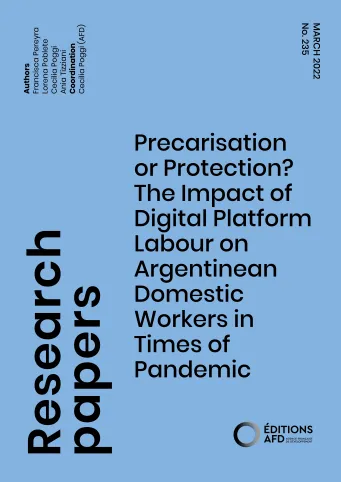Share the page
Precarisation or Protection? The Impact of Digital Platform Labour on Argentinean Domestic Workers in Times of Pandemic
Published on

The article analyses how the platform economy affects the domestic service sector, focusing particularly on the issue of workers’ formalisation. It looks at Zolvers, the only digital platform for domestic workers in Argentina, and uses a mixed method approach to inspect workers’ relationship between jobs in and out of the platform. The article argues that the association between domestic service and the platform economy should be analysed in context: the uberisation of the activity is not a linear and uniform trend, but rather a contextual one. In fact, compared to off-platform jobs in the sector, the paper finds significantly higher levels of registration among Zolvers workers. This is particularly relvant since Zolvers’ jobs are characterized by few weekly hours, a kind of insertion that has proved most resistant to formalisation policies in the sector. The paper delves into the reasons behind these phenomenon, paying particular attention to the way in which workers experience their labour conditions. In the context of the Covid-19 crisis, the article also shows that registration, although having a protective effect, does not counteract the vulnerability implied by short-hours job positions, whose termination is substantially cheaper than full-time work.
Useful Information
-
Authors
-
Francisca PEREYRA, Lorena POBLETE, Ania TIZZIANI, Cecilia POGGI
-
Coordinators
-
Edition
-
235
-
Number of pages
-
32
-
ISSN
-
2492 - 2846
-
Collection
-
Research Papers
